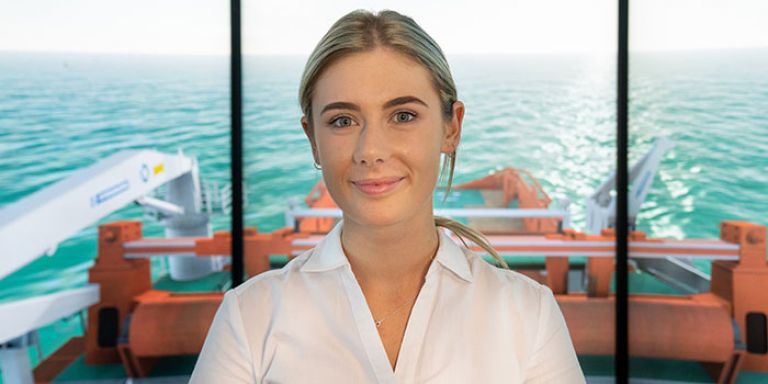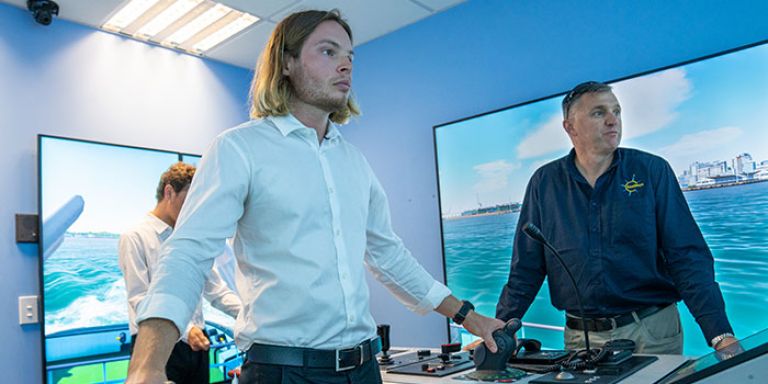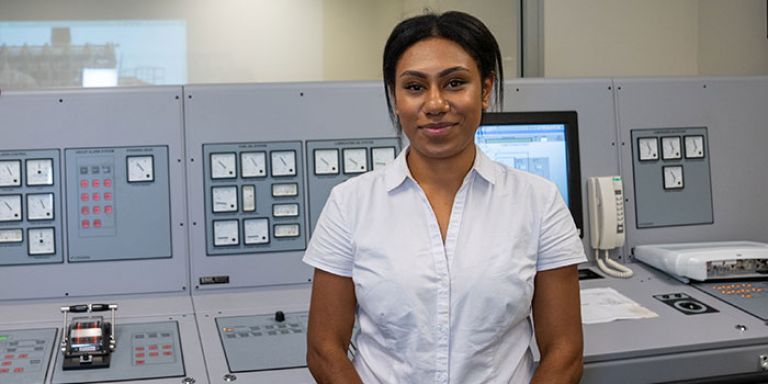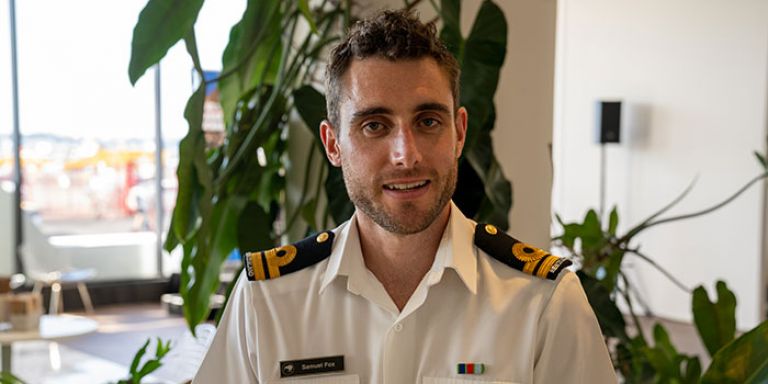Programme highlights
Turn your experience into a globally recognised licence.
If you are new to the industry with no experience and want to become a Deck Watch Rating (DWR) or start your training towards becoming a navigation officer, this is the programme for you.
You’ll gain the skills and knowledge required to work as crew on general commercial or passenger vessels. You will learn about shipping operations, shipboard practice and survival at sea.
You may find yourself working on a wide range of foreign-going ships from cruise liners, ferries and container vessels, through to support vessels in the oil and gas industry. You will carry out crewing duties at a support level to watchkeepers and masters, and be well prepared for a rewarding career in a global industry.
Entry requirements
General
Open entry for domestic students
There are no academic requirements that need to be met to enter this programme.
International students: English language entry requirements
For the minimum English language requirements refer to the requirements set out in the NZQF Programme and Accreditation Rules.
International students will generally be required to provide evidence of English language proficiency, for this programme an IELTS General or Academic score of 5.5 with no band score lower than 5 is required. Equivalent acceptable evidence can be seen at the following NZQA link.
Important information
Entry to this qualification is open but completion does not guarantee the award of a Maritime New Zealand licence.
All persons wishing to qualify for a seafarer licence must also check the Maritime New Zealand prior certification and minimum service requirements for that licence. Also: Seafarers Framework which outlines medical fitness requirements https://www.maritimenz.govt.nz/rules/part-34/default.asp and Maritime New Zealand Part 34:Medical Standards https://www.maritimenz.govt.nz/rules/part-34/Part34-maritime-rule.pdf.
Give yourself credit with Recognition of Prior Learning (RPL)
Did you know you can use the knowledge and experience you already have to your advantage?
Your previous work experience and on-the-job skills, volunteering, professional development, and other providers’ qualifications can be recognised as prior learning, matched against credits in our courses, and put towards your qualification – potentially saving you money and possibly helping you to complete your qualification faster Learn more.
Programme structure
You will need to complete five compulsory courses, as well as the courses from your chosen strand (60 credits):
Compulsory courses:
Level 2
Level 4
Courses related to your chosen strand:
Deck Crew
Optional course:
942.477 Marine Dangerous Goods (5 credits)
Do you want to study a single course, without enrolling into the full programme?
Courses within some of our programmes may be offered as an individual Certificate of Proficiency (COP). Programme entry requirements and course fees apply. For more information, please speak to our friendly Ask Me! team.
Further training or study
If you want to become a deck (nautical) officer you can continue onto further study with:
Upon successful completion of this programme, you can pathway onto a Chief Mate or Master of a vessel with a:
Career opportunities
Combined with sea-time, this certificate leads to careers as a rating on board commercial ships.
Completion of this certificate leads to entry into one of the three Level 6 Diploma programmes (nautical science, marine engineering and marine electro-technology).
DWR trainee, DWR qualified (after 2 months at sea), AB qualified (after 14 months at sea).
For potential salaries visit careers.govt.nz.

















